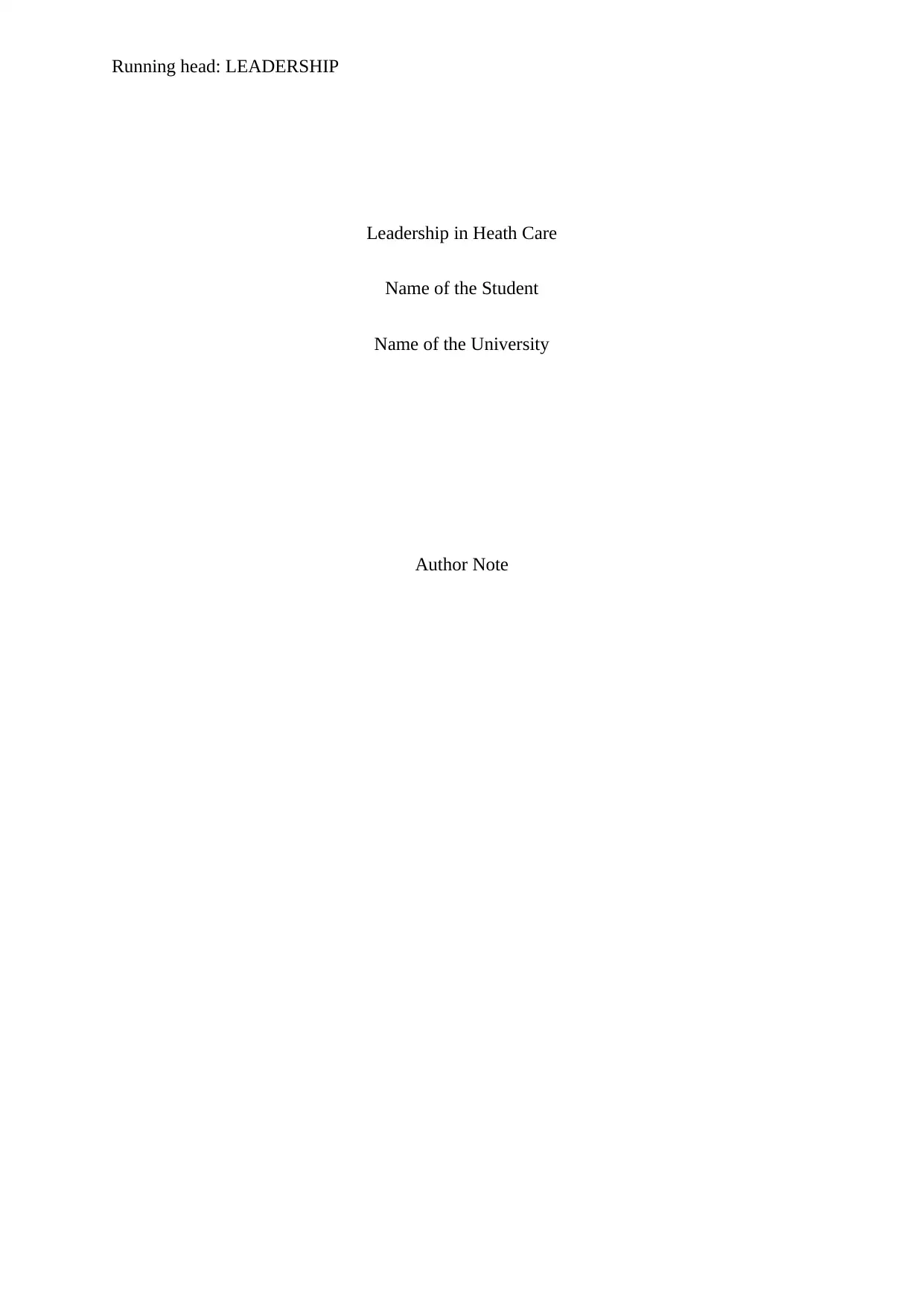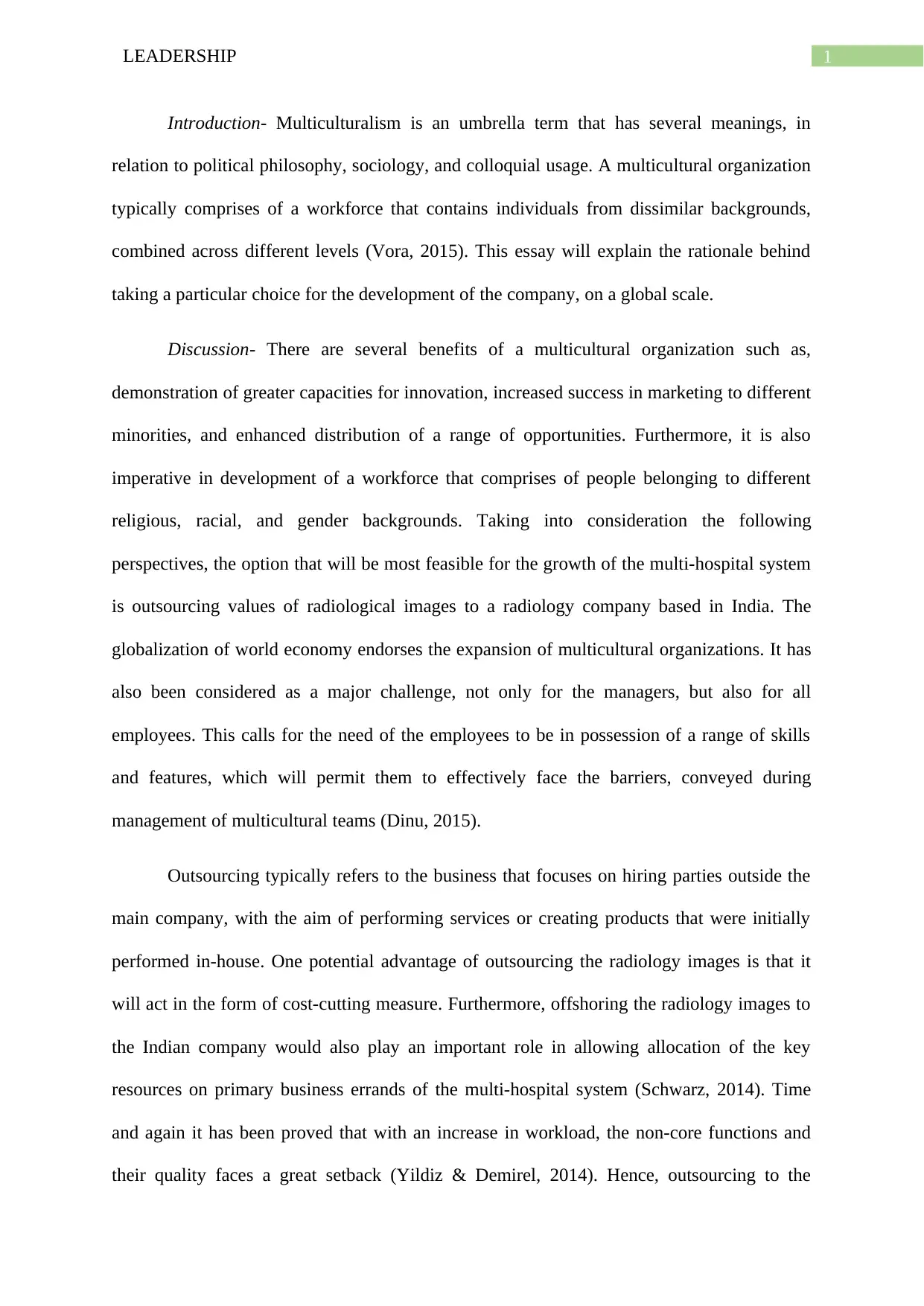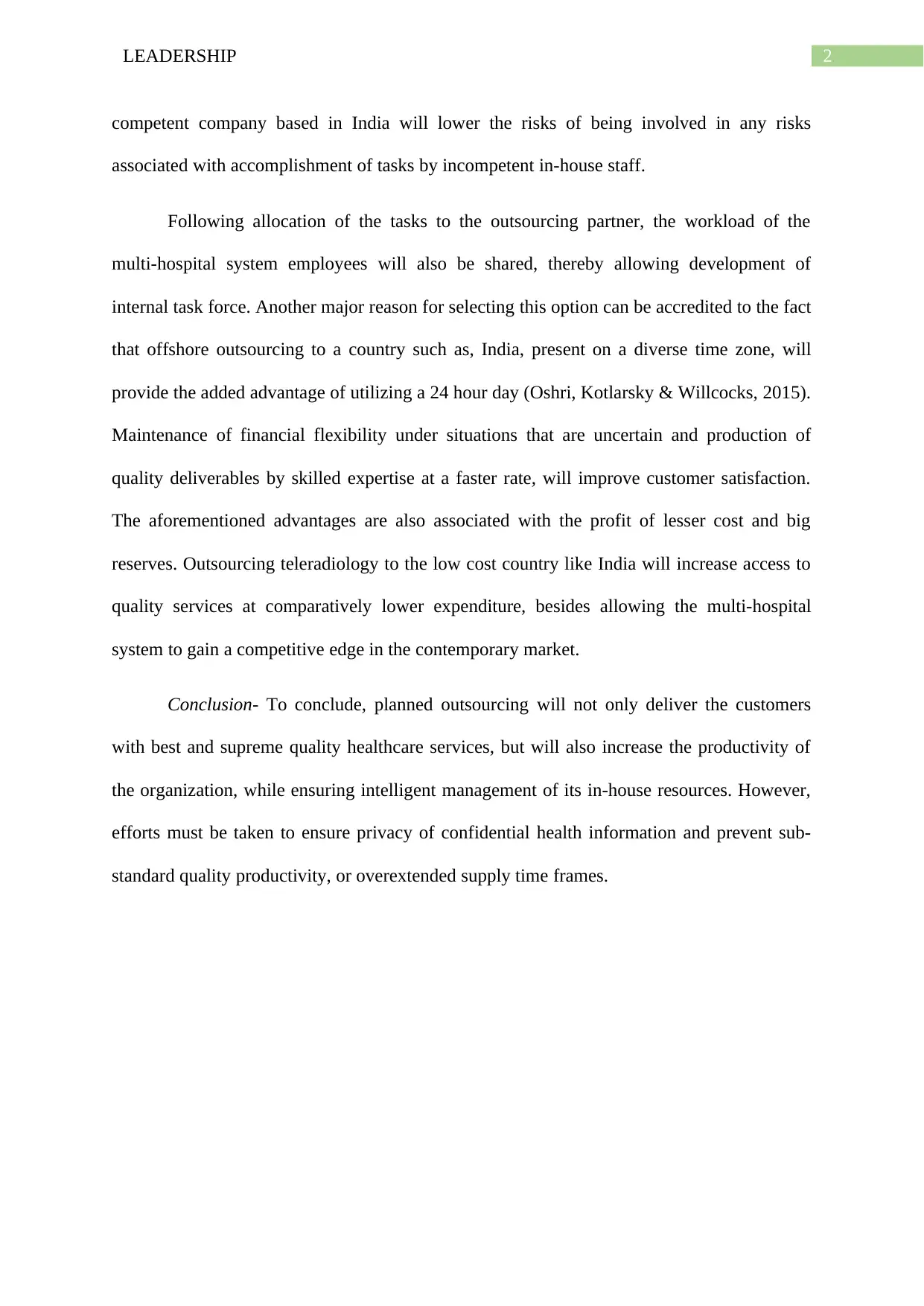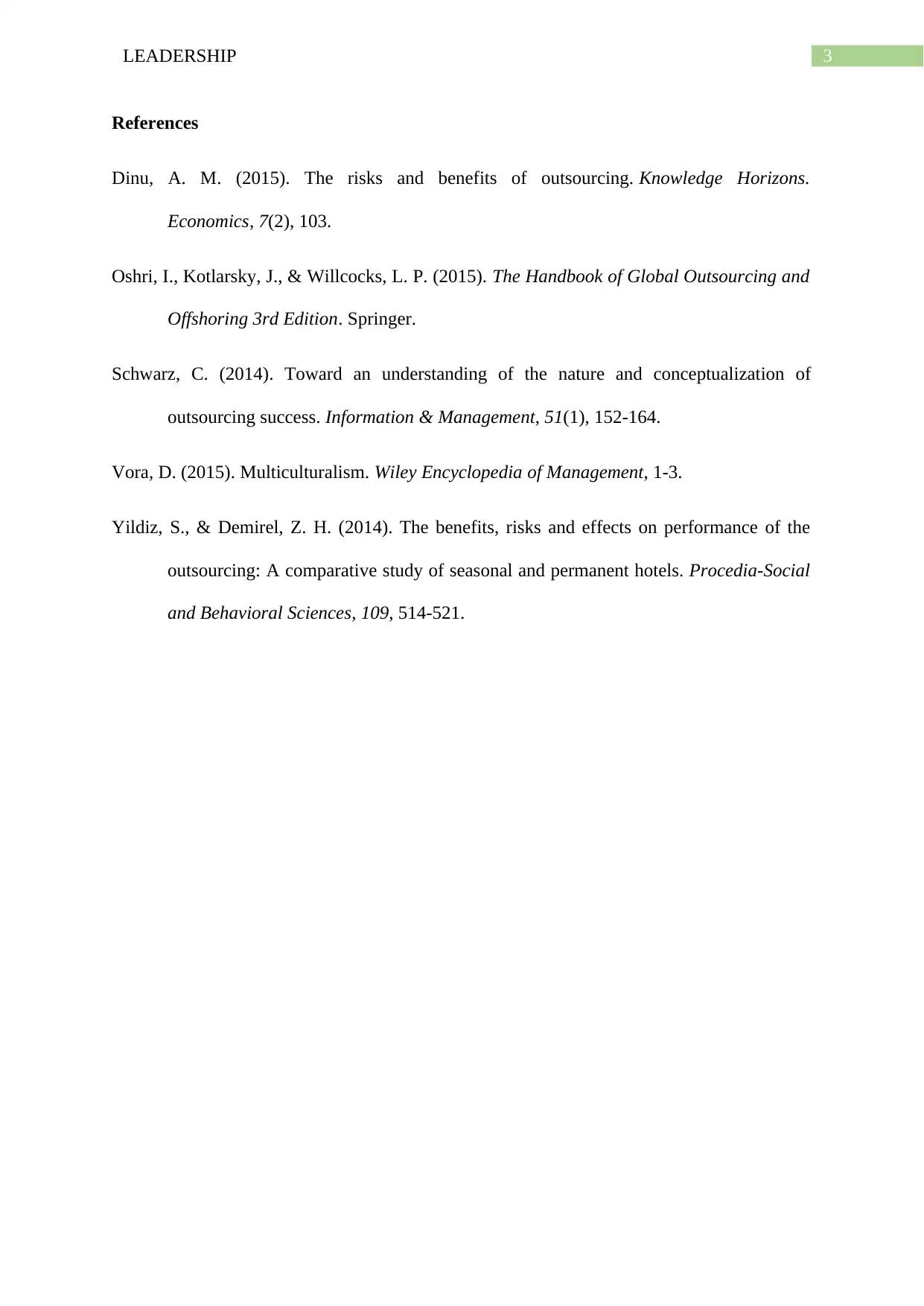Strategic Leadership: Multiculturalism in Multi-Hospital System Growth
VerifiedAdded on 2023/04/26
|4
|788
|259
Report
AI Summary
This report explores the role of leadership in navigating multiculturalism and outsourcing within a rapidly growing multi-hospital system. It analyzes the potential benefits and challenges of outsourcing radiological image reading to an India-based company and medical records transcription to a Pakistani company. The report argues that outsourcing can lead to cost savings, resource allocation, and improved service quality by leveraging global expertise and diverse time zones. However, it also emphasizes the importance of addressing potential risks such as data privacy, quality control, and supply chain management to ensure successful implementation and customer satisfaction. The conclusion highlights that strategic outsourcing, when carefully planned and executed, can enhance organizational productivity and resource management while delivering high-quality healthcare services.
1 out of 4








![[object Object]](/_next/static/media/star-bottom.7253800d.svg)